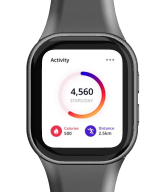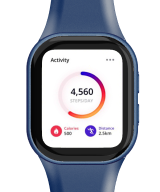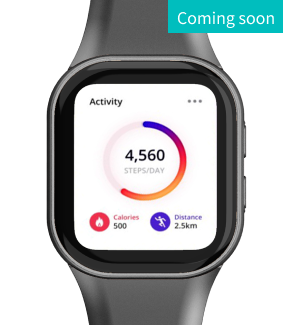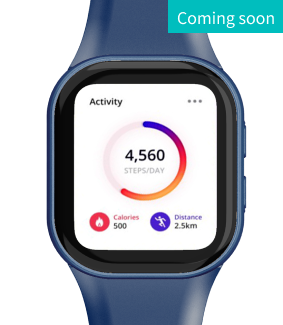6 Ways Climate Change Affects Health — and How to Protect Yourself
Experts say environmental toxins are the biggest health threat we face. But change is possible.

You’ve likely seen numerous headlines about climate change on websites and TV lately, but you may be wondering what factors such as rising sea levels and warmer temperatures mean for you now. Believe it or not, environmental changes like these and others have direct and indirect effects on your health.
“Climate change is no longer just a problem for polar bears,” says Surili Sutaria Patel, a climate and health equity advocate and vice president at the Metropolitan Group, a social change agency in Washington, DC. “It’s not a problem of the future. It’s harming our health and threatening our well-being as we know it today, and some communities are bearing the brunt of it.”
When the U.S. Supreme Court issued its ruling on West Virginia v. Environmental Protection Agency in June, public health and climate change advocates both sounded the alarm about the potential consequences. The ruling in part makes it harder for the Environmental Protection Agency to limit power plant emissions, which release harmful pollutants, such as sulfur dioxide, nitrogen dioxide, and carbon monoxide, into the air. Those pollutants come from the burning of fossil fuels and are linked to cancer and other major health concerns.
The Pan American Health Organization has called climate change “the biggest global health threat of the 21st century,” with millions of lives at stake. That’s no exaggeration: Climate change may affect human health in countless ways. Here are six of them, from experts, and what you need to know to protect yourself and your community.
-
NO.1 Climbing Temperatures May Hamper Good Sleep
A study published in One Earth in May 2022 found that, by 2099, rising temperatures may erode 50 to 58 hours of sleep per person each year. That’s like losing more than a week of sleep every year. “It’s harder for people to sleep in higher heat, especially those who don’t have access to cooling or ventilation,” says Patel.
The effect may be particularly noticeable in cities, thanks to what is known as the urban heat island effect, which is when urban areas get hotter than suburban and rural areas. “Concrete and impervious surfaces and lack of greenery traps heat within the city limits,” Patel explains. “At nighttime, when naturally our ecosystem is set up to release heat, heat is trapped, and then in the morning compounded. All of that affects sleep.”
The One Earth study cited research that shows that sleep loss is linked with worse cognitive function and reduced immunity to disease, as well as increased risks of injury, heart problems, and mental health issues. -
NO.2 Changing Weather Patterns May Increase the Spread of Infectious Diseases
Research shows that rising temperatures and changes in rainfall can make regions more or less hospitable to disease carriers like mosquitos and ticks, which means malaria, dengue, and Lyme disease may spread into areas that have not previously been at risk, says Linda Rudolph, MD, MPH, director of the Center for Climate Change and Health at the Public Health Institute. “Warmer temperatures can also affect how quickly some pathogens grow and replicate,” Dr. Rudolph says, “for example, some of the bacteria that cause food poisoning.”
Rudolph also points out that climate change can cause migration by both animals and humans, putting us into contact with diseases we may not have encountered before. “As the planet gets hotter, some animals are moving toward the poles, coming into contact for the first time with different animals, and in some cases with people,” she says. “We also know that deforestation — which is also a significant cause of climate change — is causing a loss of natural habitats and making animals move to new areas, where they might share germs with people or other animals.” -
NO.3 Air Pollution May Make It Harder to Breathe
Air pollution is linked to multiple respiratory conditions. “Warmer temperatures cause more ozone pollution, or smog, that causes damage to the airways and exacerbates asthma and chronic lung diseases like emphysema and bronchitis; ozone pollution may also cause asthma,” Rudolph says. “Climate change is increasing the frequency and intensity of wildfires that release huge quantities of smoke that may spread over hundreds of miles. Wildfire smoke is laden with particulate matter, which causes premature death, aggravates asthma, increases the risk of heart attacks, and has been associated with premature birth and other adverse birth outcomes.”
-
NO.4 More Pollen May Worsen Allergies and Skin Diseases
“Warmer temperatures also mean that plants produce more pollen, and many people who suffer from allergies are finding that their allergies are worse and the allergy season is longer,” Rudolph says. The Harvard T.H. Chan School of Public Health has reported that carbon pollution and warmer temperatures make plants produce more pollen over longer growing seasons. In fact, scientists have suggested that average pollen counts in 2040 will be more than double what they were in 2000. And a study published in Allergologie Select in 2021 found that these changes can also make eczema worse.
-
NO.5 Eco-Anxiety May Erode Mental Health
“Recently, we are seeing a rise in eco-anxiety, or climate anxiety, in the youth — they want to take action yet may not be old enough to have the political capital or power,” Patel says. Surviving climate disasters has lasting effects on mental health, too. A study published in Psychiatric Quarterly in 2020 showed that disasters made worse by climate change can lead to an increase in alcohol use, anxiety, anger, and post-traumatic stress disorder.
-
NO.6 Higher Temps Can Compound Chronic Conditions
“Extreme heat makes it really difficult to regulate your body, which affects people with cardiovascular disease but also related health issues, like high blood pressure and high cholesterol,” Patel says. “It makes those folks a little bit more vulnerable to dehydration, heat stroke, and heat stress.”
Climate change has long been linked to an increased risk of cancer, but it can also worsen cancer outcomes. An increase in natural disasters can release carcinogenic material into communities, overwhelm healthcare providers, and make it harder to get care, resulting in deaths, according to an article published in Cancer Epidemiology, Biomarkers and Prevention in 2020.
The ones hit hardest by climate change, Patel says, tend to be children, pregnant women, people in low-wealth communities, and populations that are more likely to have chronic health conditions, such as older adults. “Access to hospitals, schools, and transportation systems could be life or death for some. And housing quality plays a huge role in one’s ability to stay cool, stay safe from flooding, and access mold remediation.” Older homes with lead pipes are at risk because the lead is more concentrated in drinking water on extremely hot days.
Combating climate change can feel overwhelming, but there are steps you can take to protect yourself and your loved ones. Experts recommend the following:
-
NO.1 Increase your health literacy.
“It’s super important to understand your health and the health of your family, so that you can ask your doctor questions about the role climate change plays in your well-being,” Patel says. Talk to your doctor about what types of alerts or weather events you should be looking out for when it comes to heat, stress interactions with medications, or your children’s exposures to heat, cold, mold, and allergens.
-
NO.2 Build an emergency supply kit.
This is especially important if you you live in an area that’s prone to flooding, hurricanes, or wildfires. Ready.gov has tips on what you’ll need, based on your location and the needs of your family members. And don’t forget emergency supplies for pets!
-
NO.3 Eat less meat.
Research published in Advances in Nutrition in 2020 found that diets low in meat and high in fruits and vegetables were linked with less greenhouse gas emissions and lower risks of chronic diseases, thereby reducing people’s vulnerability in high temperatures.
-
NO.4 Reduce the amount of single-use plastics in your life.
The Natural Resources Defense Council says that small individual choices can add up, and it has tips on making easy switches, such as carrying grocery totes and a reusable water bottle, Buying in bulk, and cooking more at home.
-
NO.5 Pay attention to heat warnings, and find ways to stay cool.
“Even a few hours a day of air-conditioning can reduce the risk of heat illness,” Rudolph says. “If you have air-conditioning, make sure it is working, or find out where you can go that will have air-conditioning, like a shopping mall, public library, or cooling shelter or community resilience hub. Make sure you check on your friends during a heat wave, and ask that they check on you.” Keeping your sleep space cool will also help with catching precious z’s.
-
NO.6 Vote to protect the climate and your health.
“It’s an election year for local elections, and those officials wield way more power — especially after the Supreme Court ruling — on local decisions that will affect your health directly: your parks, your streets, your schools, your taxes,” Patel says. “Go to your local elections board to understand where candidates on your local ticket stand on climate. You will see who’s thinking about climate and who’s not. You will see how money for your neighborhood safety is being discussed.” Get educated about the issues and candidates, find your polling place, and get registered to vote. Then talk to friends and family members, help them get registered and mobilized, and offer them a ride to cast their ballot, if needed.








